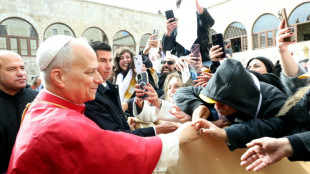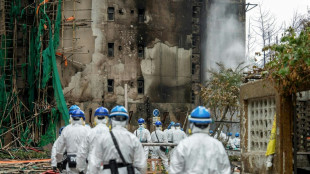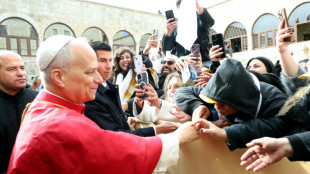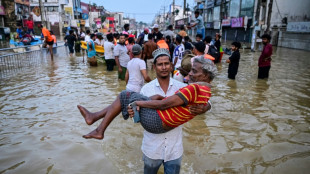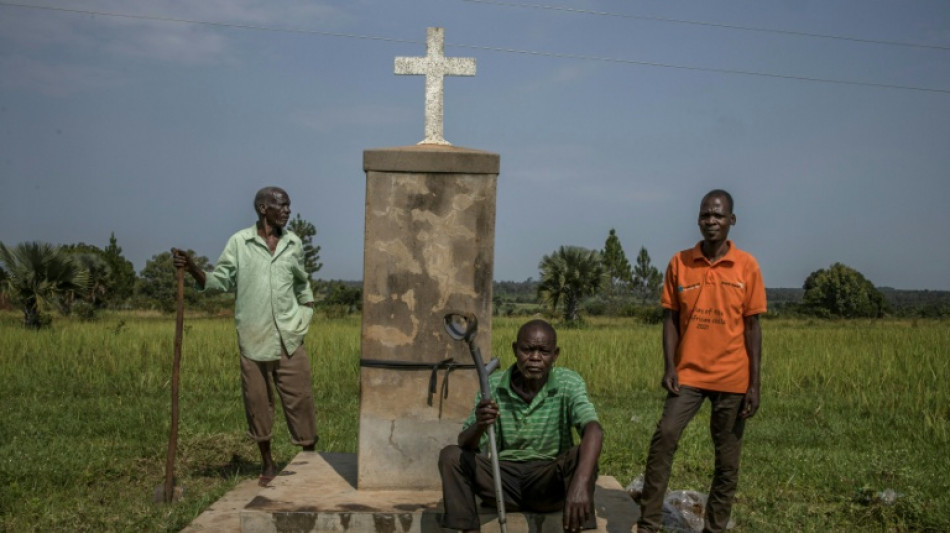
| RBGPF | -0.42% | 76 | $ | |
| CMSD | 0.04% | 23.33 | $ | |
| CMSC | -0.43% | 23.36 | $ | |
| RYCEF | 1.38% | 13.8 | $ | |
| NGG | -0.36% | 75.84 | $ | |
| GSK | -0.46% | 47.64 | $ | |
| RELX | -0.93% | 39.84 | $ | |
| VOD | -2.13% | 12.21 | $ | |
| RIO | 0.76% | 72.5 | $ | |
| JRI | -0.12% | 13.783 | $ | |
| BTI | -0.6% | 58.31 | $ | |
| BCC | 0.03% | 76.045 | $ | |
| AZN | -1.67% | 91.21 | $ | |
| SCS | 0.52% | 16.375 | $ | |
| BCE | 0.17% | 23.55 | $ | |
| BP | 0.89% | 36.425 | $ |

ICC hears harrowing details as Kony war crimes hearing opens
Villages torched, young girls forced into sexual slavery, women abandoning babies to flee for their lives: the International Criminal Court Tuesday heard harrowing stories of atrocities allegedly committed by Joseph Kony's Lord's Resistance Army in Uganda.
The fugitive warlord faces 39 counts of war crimes and crimes against humanity, including murder, rape, torture, enslavement, and sexual slavery, allegedly committed between July 2002 and December 2005 in northern Uganda.
Opening the hearing -- the first-ever held in absentia at the ICC, since Kony has been on the run for two decades -- Sarah Pellet, a lawyer representing victims, laid out the horrors Ugandan civilians suffered.
The victims "had no choice when they were forced to watch killings. They had no choice when they were made to kill. They had no choice when their bodies were turned into tools of war," Pellet told the court in the Hague.
She cited an 11-year-old girl abducted by LRA fighters to become a "wife".
This girl, and countless others kidnapped, were "children enslaved, subjected to sexual violence day after day, their humanity reduced to the whims of men who treated them as property," said Pellet.
Kony, a former Catholic altar boy, headed the feared LRA, whose insurgency against the Ugandan government saw more than 100,000 people killed and 60,000 children abducted, according to the United Nations.
His stated aim was to establish a nation based on the Bible's 10 commandments, but those who escaped told gruesome tales of the group's brutality, being forced to hack or even bite others to death, eat human remains, and drink blood.
"The cruelty was unrelenting. It sought not just to kill but to break the spirit," said Pellet.
She cited another victim as saying: "The rebels shot at me, forcing me to throw my baby down to run for my life. I still do not know where my child is."
Opening the case for the prosecution, Mame Mandiaye Niang said the repercussions of the violence were still felt today in Uganda.
"Scarred in their body and spirit, survivors still struggle to recover from the ordeal they endured," Niang told the court.
"The social and cultural fabric of Uganda has been torn apart and they are struggling to recover."
- 'Not satisfying at all' -
In Uganda, around 200 people watched the hearing from Gulu Secondary school hall, including Richard Ochola, a 34-year-old peasant farmer.
"Watching the screen without seeing Kony's face is not satisfying at all. Our dream is to have Kony face trial, denying or confirming he killed people," Ochola told AFP.
"What we are watching at the moment is no different from watching a movie produced in a foreign country, because inside the courtroom, there are no people we know or we can relate to our suffering," he added.
Tuesday's hearing was not a trial but the first of a three-day "confirmation of charges" hearing -- during which prosecutors will lay out the charges against Kony, born in September 1961.
After the hearing, ICC judges will decide whether the charges merit a trial -- a process that occurs within 60 days.
In the Kony case, a trial is not possible as the ICC cannot try a suspect in absentia.
Kony's defence lawyer Peter Haynes said his team would show the court that "the charges, or at least some of them, are formally impermissible or legally incorrect."
Prosecutors say holding a hearing would mean a quicker trial if Kony were ever found and brought to the Hague.
"This hearing will advance proceedings in a tangible way," said Niang.
Kony was once believed to be in Sudan, but a UN panel said in June 2024 he is thought to have left due to the civil war there, relocating to a remote part of the Central African Republic.
His last-known appearance was in 2006, when he told a Western journalist he was "not a terrorist" and that stories of LRA brutality were "propaganda".
It is not known whether he is even still alive.
burs-ric/jhb
A.Deguara--JdM
